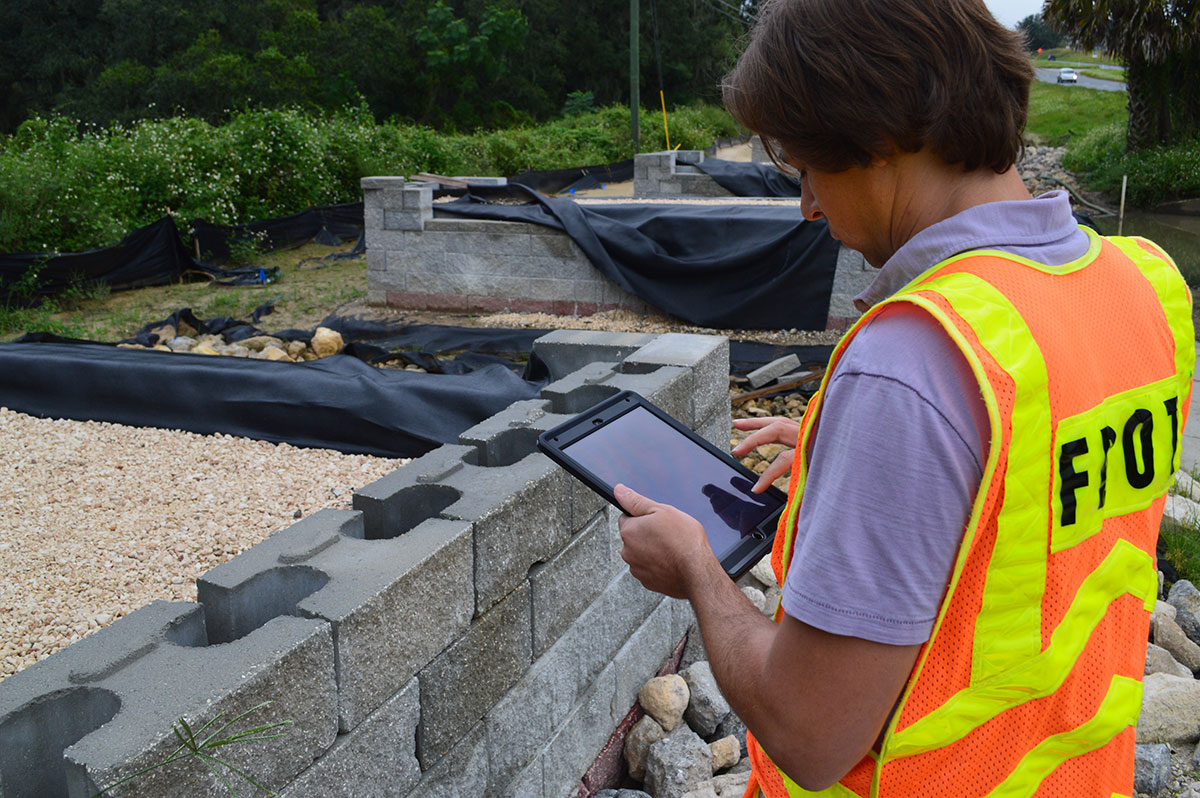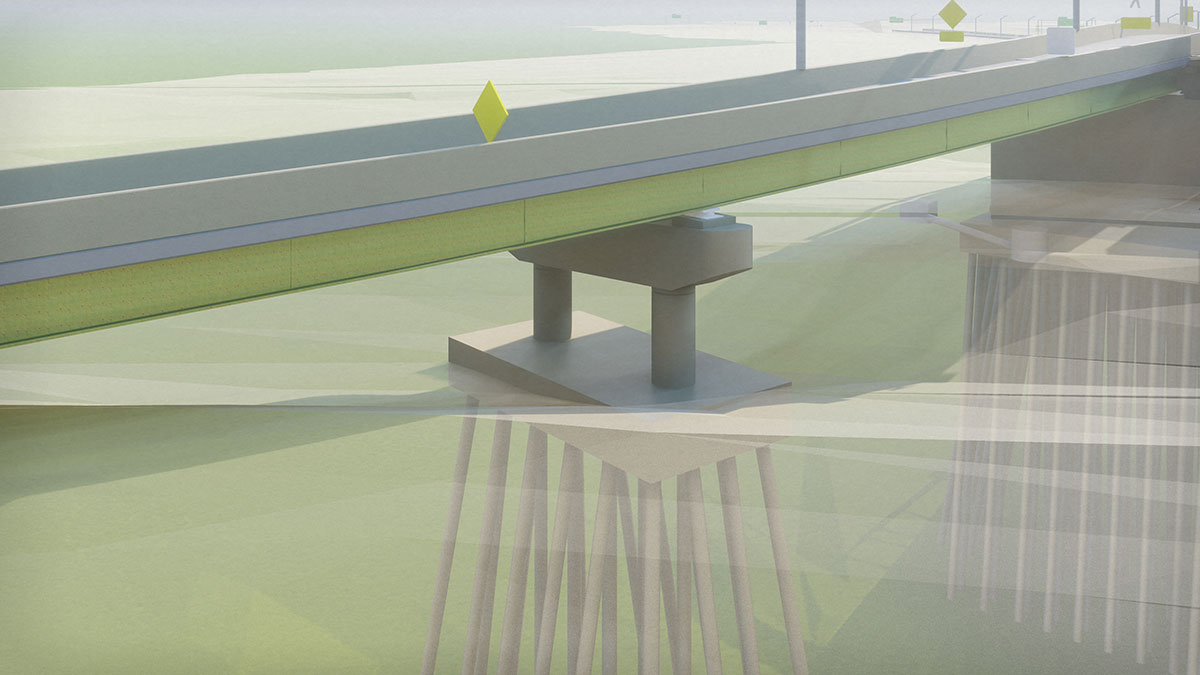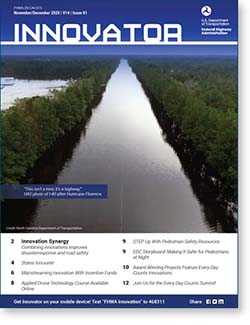November 5, 2020
EDC-6 Summit Preview:
e-Ticketing and Digital As-Builts
EDC-6 is just around the corner, and each week through the end of the year, we will give you a preview of the seven innovations being featured in this round. This week, we will take a sneak-peak at electronic ticketing (e-Ticketing) and digital as-builts.
Highway construction projects produce massive amounts of valuable data. Historically, information such as materials tickets and as-built plans were communicated via paper. Today's transportation agencies are improving on these paper processes by integrating them into electronic and digital workflows. E-Ticketing improves the tracking, exchange, and archiving of materials tickets. Digital information, such as 3D design models and other metadata, can enhance the value of contract documents and the future usability of the as-built plans for operations, maintenance, and asset management. Both can increase project safety and quality through efficient data gathering and sharing.
e-TICKETING
A paperless process for creating, sharing, tracking, documenting, and storing materials information, accessible in real time via mobile devices, provides agencies and contractors with an electronic means to verify materials deliveries while enhancing safety, streamlining inspections, and improving contract administration procedures. Using electronic ticket exchanges on mobile devices simplifies handling and integration of material data into construction management systems for acceptance, payment, and source documentation. Real-time access to tickets reduces processing time, decreasing delays occurring in paper-based project administration. This process also provides consistent and efficient project documentation and standardized data across projects.

DIGITAL AS-BUILTS
Using digital data such as 3D models to build road projects is becoming an industry standard. Sharing the design model and associated digital project data allows agencies and contractors to streamline project delivery and contract administration and to collaborate on challenges virtually before they get to the field. When the model is updated and augmented with other data to reflect the project's as-built condition, the model is enhanced for future maintenance, asset management, and rehabilitation activities. Using digital as-builts can result in safer project construction, shorten work zone traffic impacts, shorten project delivery, and help agencies better maintain transportation infrastructure over time.

To learn more about e-Ticketing and digital as-builts, contact Rob Elliott with the FHWA Resource Center, register for the EDC-6 virtual summit and attend the breakout session on Dec 10, or visit FHWA’s EDC website.
Searching for Pedestrian Safety Solutions? Check out STEP Case Studies
The Safe Transportation for Every Pedestrian (STEP) program has produced over 30 case studies that highlight the safety benefits of each of the “spectacular seven” countermeasures: crosswalk visibility enhancements, raised crosswalks, pedestrian refuge islands, Road Diets, Rectangular Rapid Flashing Beacons, Pedestrian Hybrid Beacons, and Leading Pedestrian Intervals.
Learn how the Rhode Island DOT, City of Seattle, and the Los Angeles DOT developed crosswalk inventories and conducted systemic analysis to prioritize pedestrian safety improvements. Other case studies showcase how the City of Milwaukee, the Broward Metropolitan Planning Organization and multiple State DOTs integrated data into transportation plans and policies for improving pedestrian safety.
If you would like more information on the STEP program, contact Becky Crowe with FHWA's Office of Safety or Peter Eun with the FHWA Resource Center.
Join Us for the EDC-6 Virtual Summit
Registration is open for the EDC-6 summit. This year’s event will be held virtually in three half-day sessions on December 8, 9, and 10.
The summit brings together transportation leaders and frontline professionals responsible for developing and delivering highway projects. We welcome participation from all of our partners–State transportation departments, local agencies, Federal land management agencies, tribes, and industry.

On the first day of the summit, people-focused innovations will be featured. These include virtual public involvement, which seeks to increase public engagement during project planning and development in new and innovative ways; strategic workforce development–strategies and resources for identifying, training, and placing individuals in the contractor workforce; and crowdsourcing for operations–methods of using crowdsourced data from multiple streams to optimize road use, reduce congestion, increase safety, and improve reliability.
To learn more about the featured innovations and other events that will take place during the event, view the draft agenda here.
New Innovator Now Available!
The November/December issue of Innovator is now available, accessible from your computer, tablet, or mobile phone to optimize your reading experience!
In this issue:
- Innovation Synergy
- Mainstreaming Innovation with Incentive Funds
- Applied Drone Technology Course Available Online
- STEP Up With Pedestrian Safety Resources
- Award-Winning Projects Feature Every Day Counts Innovations
- And more...
Comments? Questions? We'd love your feedback! Drop us a line and let us know what you think.
Read past issues and sign up to receive Innovator by email here, or text "FHWA Innovation" to 468311 to get Innovator on your smartphone.
About EDC
Every Day Counts, a State-based program of the Federal Highway Administration’s Center for Accelerating Innovation, works with State, local, and private sector partners to encourage the adoption of proven technologies and innovations to shorten and enhance project delivery.



